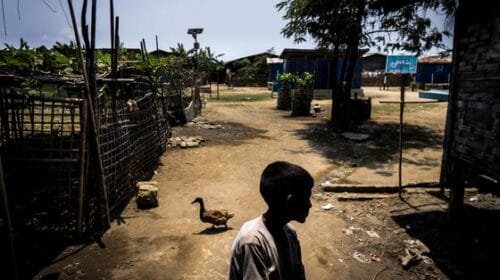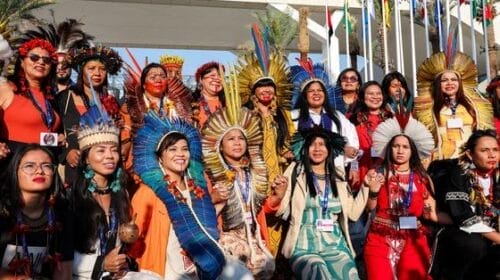Security Council must ‘come together’ to address the plight of children trapped in armed conflict, says UN envoy

“Children exposed to alarming levels of violence should not be further ostracized once released from armed groups and armed forces”, she upheld. “We must allow these children to be considered as what they are: victims of a conflict”.
She asked the Council to work for humanitarian access in resolutions and bilateral relations, explaining that “we can strain every sinew at the highest level to prevent violations, but we also need to be able to respond quickly to violations when they occur”.
Additionally, Ms. Gamba underscored the need for more dialogue and engagement.
“We cannot afford to lose children once they are released and we cannot afford to make them wait their turn for reintegration assistance”, she said, flagging the need for real reintegration of boys and girls globally.
In closing, Ms. Gamba implored the Council’s support to engage with conflict parties to end and prevent violations and to ensure sufficient pressure to make commitments mean something.
“And, most of all, we need your support to ensure that there is the requisite child protection capacity to give children affected by conflict all the support they need”, concluded the Special Representative.
“We must face facts [and] we must do better”
In her remarks, Henrietta Fore, Executive Director the UN Children’s Fund, spotlighted the stark figures from the report, pointing to the 24,000 violations against conflict-affected children documented in 2018. Half of these cases involve the killing and maiming of children, she said, adding: “Those are just the verified incidents; we must do better.”
She also expressed deep distress over the continued rampant use of explosive weapons and their impact on children, who account for more than two thirds of all civilians killed and maimed by these weapons. “Ten years after the Council adopted resolution 1882 (2009), the facts tell us that we have miles to go to end grave violations against children in armed conflict,” she said.
“But they do not tell the whole story; there is so much we can do to come to the aid of children at risk.”
While stressing that Governments are responsible for preventing the recruitment and use of children in armed conflict, she said UNICEF is supporting related projects, including an age-verification workshop with the armed forces of Sudan.
Authorities must also exercise maximum restraint in preventing the excessive use of military force against people engaging in peaceful protest.
UNICEF remained especially concerned about the mental health, physical security and basic rights of children associated with armed groups.
“Tens of thousands of these children are languishing in camps, detention centres and orphanages in Syria, Iraq and other countries”, she maintained. “They are shunned by their communities because of perceived or actual links with groups designated as terrorists”.
When children leave these groups, after years of harrowing experiences, they should receive protection and humanitarian assistance. But instead, they are ostracized, rejected and locked up, said Ms. Fore.
Boys and girls often join armed groups under extreme duress, coercion, fear or manipulation – or simply as a matter of survival. Evidence suggests that they are rarely driven by ideology.
“Rather than being detained, they should be reintegrated into society with a holistic approach that addresses their complex needs”, stressed Ms. Fore. “UNICEF calls on all Member States to reintegrate children associated with armed groups into society and to support holistic, evidence-based reintegration programming”.
“Protecting the lives and futures of children affected by armed conflict is not just the right thing to do, it is in our collective self-interest,” Ms. Fore emphasized. “They are the adults and the leaders of tomorrow. Let us do more to protect vulnerable children. Our global future may depend on it.”




